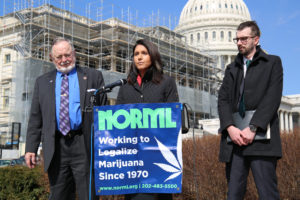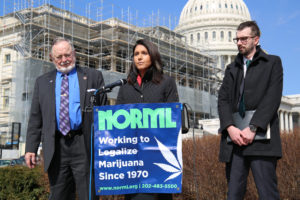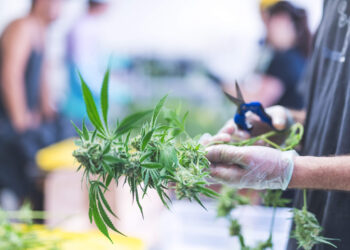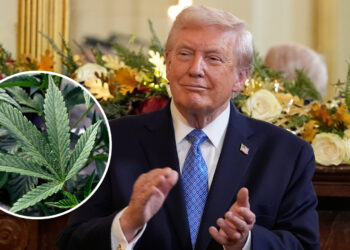March 7, 2019
Tulsi Gabbard is a Member of Congress representing Hawaii’s 2nd district
 Our archaic and outdated marijuana laws are turning everyday Americans into criminals. Every day, the economic and social impacts of marijuana prohibition are having devastating effects on communities across the country.
Our archaic and outdated marijuana laws are turning everyday Americans into criminals. Every day, the economic and social impacts of marijuana prohibition are having devastating effects on communities across the country.
That is why in 2017 I introduced the first-ever bipartisan bill that would end the federal prohibition of marijuana by removing it from the Controlled Substances Act. Unfortunately, Congressional leadership at the time blocked us from getting a hearing on this important legislation, despite having nearly 10% of the Members of the House as cosponsors and growing support from the public.
But times have changed.
I am writing to you today, as a supporter of NORML, to let you know that I just reintroduced The Ending Federal Marijuana Prohibition Act and ask you to urge your Member of Congress to join me and Rep. Don Young (R-AK) as a cosponsor of the bill.
Criminal Justice Reforms
Millions of people have been arrested for the possession or use of marijuana. Many can’t afford bail — further punishing those who are poor — and become mired in our hopelessly back-logged court system that punishes non-violent offenders with felonies and years behind bars. Others have faced the lost opportunities and life-long stigma that follows them with a criminal record.
According to the FBI’s Uniform Crime Report, police made 659,700 arrests for marijuana-related violations in 2017 alone — that’s more than 21 percent higher than the total number of arrests for violent crimes in the same year.
Our outdated marijuana laws also target communities of color. The racial disparity in marijuana-related arrests, despite similar usage across demographics, is just one indication of the systemic inequalities that we must address.
In a day and age when more than twenty percent of the population live in states which have legalized the marijuana market, and in an era where nearly every state has enacted some legal protections for the use of medical cannabis or its extracts, the time has come for federal lawmakers to end this senseless and cruel prohibition that ruins lives.
Medical Reforms
We are calling for common sense reforms that are long overdue. There is a growing body of evidence that suggests the medicinal benefits of cannabis, including its ability to prevent epileptic seizures, mitigate pain, reduce anxiety, and even halt the growth of cancer cells. However, the U.S. Drug Enforcement Administration and Congress still erroneously classify marijuana as a Schedule 1 drug, ignoring the fact that 33 states, including my home state of Hawai‘i, have already accepted the medical use of marijuana under state law. It is simply ludicrous to argue that marijuana belongs in the same category as heroin, or that it is more dangerous than cocaine.
States that have legalized the use of medical marijuana have seen lower rates of opioid abuse and mortality, and that it does not negatively impact workplace safety, teen use, or motor vehicle safety. As the opioid epidemic continues to ravage communities across the country like mine in Hawai‘i, we must explore all alternatives to save lives.
Job Creation
Just this week, a new report found that there are over 211,000 full-time jobs in the legal cannabis sector. This total increases to 296,000 jobs when supplementary employees are included.
The contradiction between state and federal laws on marijuana has created a serious problem for small businesses and stunted further economic growth. Federal law discourages banks and credit unions from offering any type of financial services to businesses or individuals whose financial transactions have anything to do with marijuana. In the states that have recognized dispensary owners and their employees, these businesses are still unable to open a bank account or get a loan.
We must pass The Ending Federal Marijuana Prohibition Act to ensure that marijuana consumers and state-licensed marijuana businesses are protected from undue federal interference. It will help reduce the strain on our criminal justice system, amend federal law to agree with cannabis’ changing cultural status, recognize the plant’s therapeutic benefits, and reduce contradictions and confusion between federal and state marijuana laws.
Please join me in urging your lawmakers to support this effort.
Thank you for your unwavering dedication to this issue and for strengthening our democracy through your participation.
Mahalo,
Tulsi












